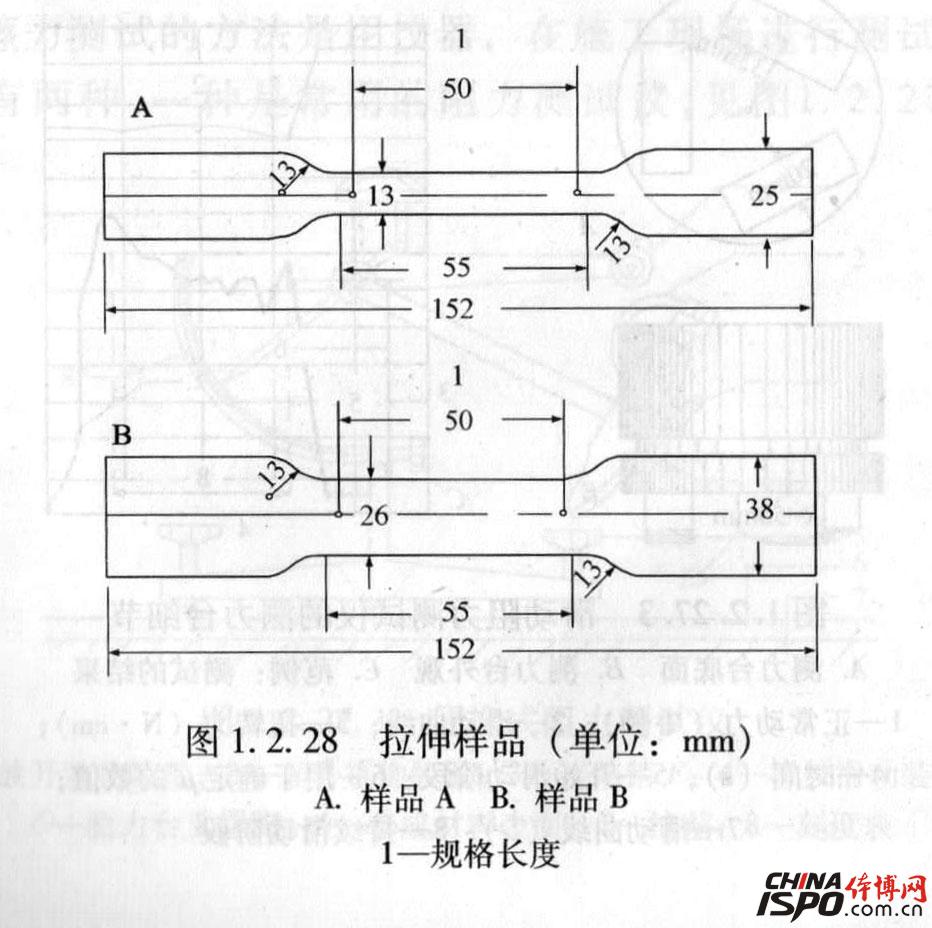Tensile testing is a destructive method used to evaluate the mechanical properties of synthetic materials. To conduct this test, a sample measuring at least 20cm x 20cm is extracted from the site and cut using a mechanical die. Alternatively, the test specimen can be molded directly on-site using a 50cm x 50cm mold, ensuring that the thickness complies with the design specifications. The sample is then shaped into a dumbbell-shaped bar, as shown in Figure 1.2.28 labeled "A", or it can also be formed into a "B" shape. Once prepared, the specimens must be stored at a constant temperature of 23°C for 24 hours before testing.
After the conditioning period, the tensile test is performed on a universal testing machine. The machine stretches the specimen at a rate of 100 mm/min until failure occurs. During the process, the load and elongation data are recorded, along with the stress-strain curve. This information helps determine the material's tensile strength and elasticity.

If the synthetic material consists of a single-component dehydrated silicone rubber, it should be allowed to cure for at least 14 days before testing. If the initial results do not meet the required standards, additional tests should be conducted on similar samples after another 14-day curing period.
The test results must comply with the requirements set by the International Association of Athletics Federations (IAAF). For non-porous synthetic surfaces, the minimum tensile force at break should be at least 0.5 MPa, while for porous surfaces, the minimum tensile force at break should not be less than 0.4 MPa. These standards ensure that the material meets the necessary durability and performance criteria for athletic applications.
coffee table,High Quality coffee table,coffee table Details, CN
Queen Furniture Co., Ltd. , https://www.queenfurnitures.com